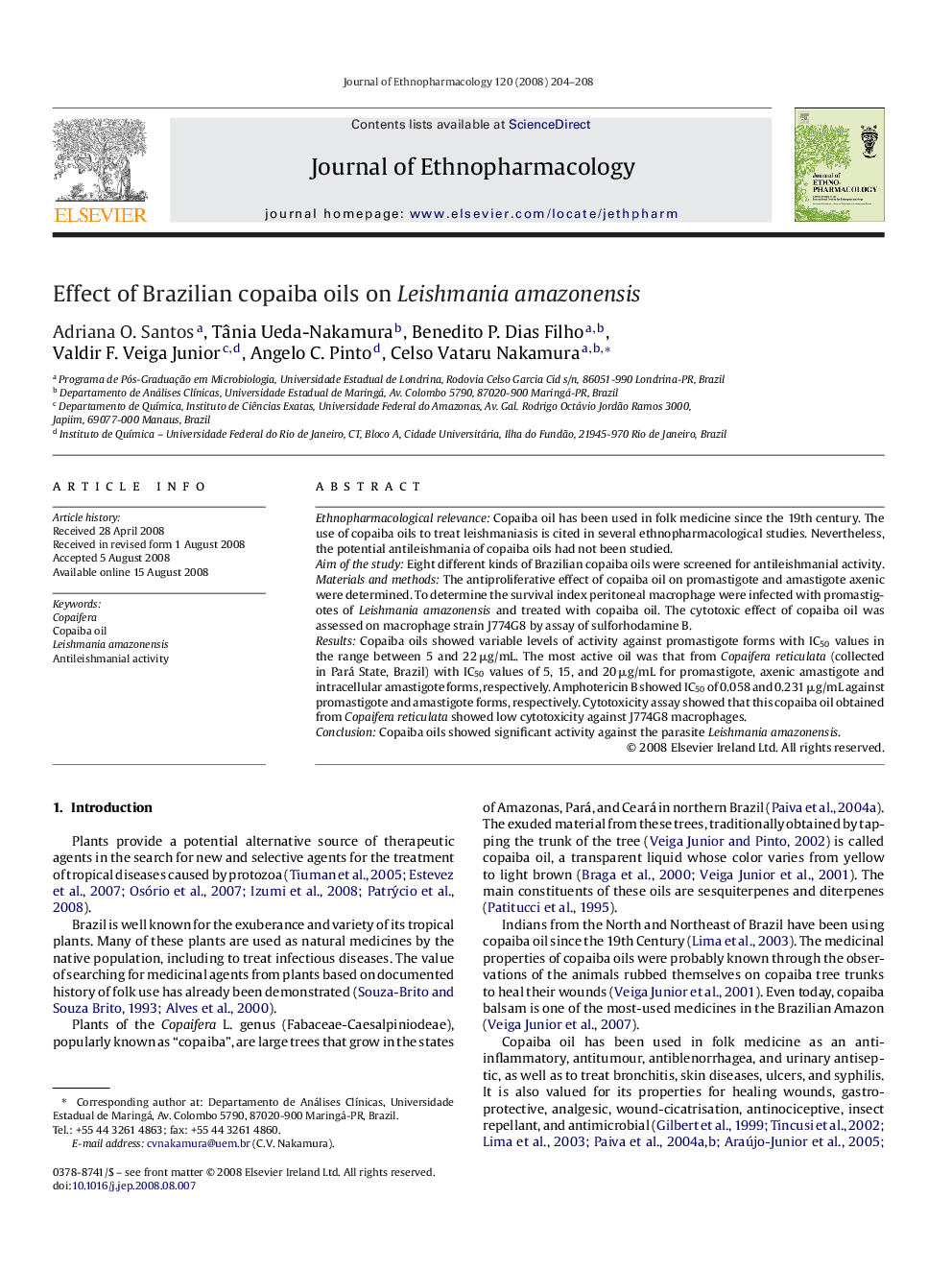| Article ID | Journal | Published Year | Pages | File Type |
|---|---|---|---|---|
| 2546848 | Journal of Ethnopharmacology | 2008 | 5 Pages |
Ethnopharmacological relevanceCopaiba oil has been used in folk medicine since the 19th century. The use of copaiba oils to treat leishmaniasis is cited in several ethnopharmacological studies. Nevertheless, the potential antileishmania of copaiba oils had not been studied.Aim of the studyEight different kinds of Brazilian copaiba oils were screened for antileishmanial activity.Materials and methodsThe antiproliferative effect of copaiba oil on promastigote and amastigote axenic were determined. To determine the survival index peritoneal macrophage were infected with promastigotes of Leishmania amazonensis and treated with copaiba oil. The cytotoxic effect of copaiba oil was assessed on macrophage strain J774G8 by assay of sulforhodamine B.ResultsCopaiba oils showed variable levels of activity against promastigote forms with IC50 values in the range between 5 and 22 μg/mL. The most active oil was that from Copaifera reticulata (collected in Pará State, Brazil) with IC50 values of 5, 15, and 20 μg/mL for promastigote, axenic amastigote and intracellular amastigote forms, respectively. Amphotericin B showed IC50 of 0.058 and 0.231 μg/mL against promastigote and amastigote forms, respectively. Cytotoxicity assay showed that this copaiba oil obtained from Copaifera reticulata showed low cytotoxicity against J774G8 macrophages.ConclusionCopaiba oils showed significant activity against the parasite Leishmania amazonensis.
